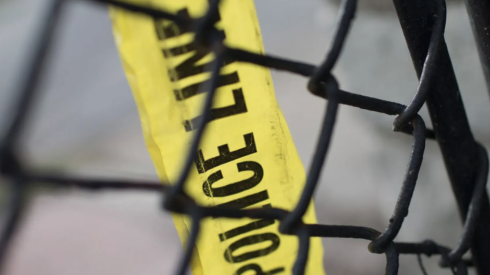At its core, America is a welcoming nation. That’s how Marc Younan of Lebanon sees the United States on this Fourth of July.
“I’m glad we live peacefully, happily,” Younan tells me. “We’re respected.”
I spoke with Younan on Friday at his restaurant, Taza Bakery, on West Devon Avenue. This section of Devon, in the West Ridge and Rogers Park neighborhoods, is among the most culturally diverse in Chicago. It’s home to American citizens of different backgrounds, newly arrived Asians and Eastern Europeans. Muslims, Jews and Christians live and shop here.
For the last two years, immigrants have been under greater attack in our country. As a presidential candidate, Donald Trump fueled the vitriol. As president, he is putting in place travel bans and immigration policies designed to instill fear and hostility of immigrants and foreigners.
OPINION
But Younan knows the other America, the welcoming one. He has lived in the United States for 30 years and in Chicago for 10. Seven years ago, he opened his restaurant. He is an American success story.
Saleem Siddiui, 60, a baggage handler at O’Hare International Airport, also knows the kinder and gentler America. For him, Independence Day is about “free people.”
“It’s a good time,” Siddiui, a Pakistani-American, said of the Fourth of July, talking to me outside his home near Devon. “But all the holidays, I work. You need to be there 30 years to get a holiday off.”
Then I met a young immigrant, 14-year-old Abdul, a legal permanent resident who asked that I not publish his last name. He was nervous because he is a Muslim from Pakistan. He worries that revealing his full identity could lead to threats against him. In his two years in the U.S., Abdul says he has seen the best and worst of America.
He is grateful for his mom’s job at a factory and speaks proudly of her. “It is a dangerous place,” he said of the factory, recounting how one of his mother’s coworkers severed a finger in a machine because “she made one mistake.”
And there is a lot he likes about Chicago. “There are people from so many races here,” he said. “That’s why I like this community.”
But while “people are nice here,” he said, “you don’t get nice responses all the time.”
Walking home school one day, for example, a driver stopped alongside him and said, “Get the f— out of my country,” he recalled. “I said, ‘Have a nice day, sir.’ If someone gives you a negative response, I try to give a positive response. My actions, whatever I do, they reflect on my community.”
He worries, as well, about traveling. “People are being asked to leave flights because they speak Arabic,” he said. Friends recently went to Mexico, he said, and he worries they will not be allowed to return.
“How are they getting back under this presidency?” he asked.
Most of all, Abdul doesn’t understand Trump. “Our current president,” he said, “talks about immigrants like we’re animals.”
Yet, he said, he respects the president. “I respect him because I have friends who are his supporters,” he said. “Their parents are lifetime Republicans.”
Last year, Abdul said, the Fourth of a July was a “big day” for him, a day of celebration. This year he is not so sure.
“Why would we celebrate independence?” he asks.
Like many immigrants these days, he’s not sure he is free.
Send letters to: letters@suntimes.com





